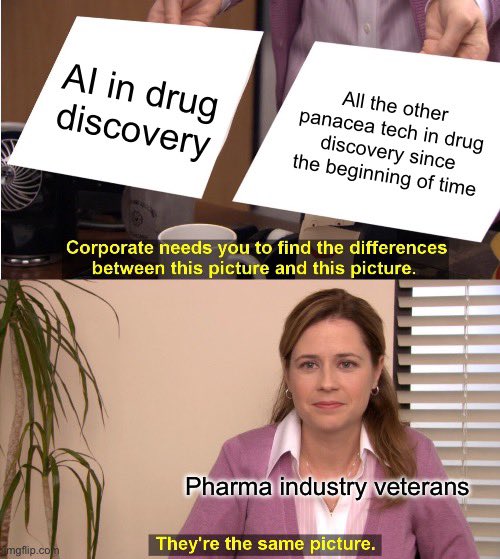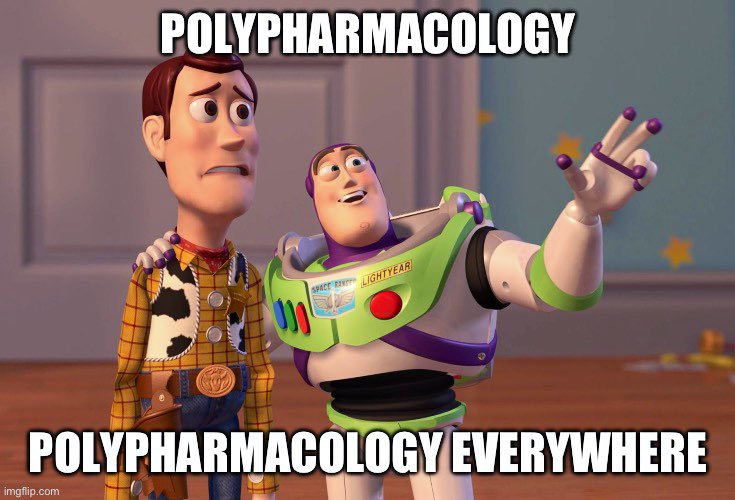Continuing the occasional Friday pharma #EarlyCareer series. Last time we talked about site interviews. This time let’s talk about negotiating job offers. (Next time we’ll deal with the inevitable rejections.) 🧵 1/ 

Usual disclaimer: everything in this thread is my observations based on 20+ years of personal experience at pharmas big and small, and should not be construed as reflecting the opinions and practices of, nor an endorsement by, my employer. 1.5/
After a site interview, it’s typical for a job offer or “no thanks” to follow within a few weeks. Allow some time here as more than one person is often being interviewed for a position. If you have time pressure (competing offers), the sooner you tell the company, the better. 2/
Most companies will still do reference checks unless you’re personally known to several folks inside the company already. If a company asks for references, this is a usually a good sign! It’s typically the final check to confirm you’re as-advertised before making an offer. 3/
(Aside: in equal measure though, if a company checks your references and doesn’t come through with an offer, that may be a sign that something is off-kilter in your references and you may want to follow up on that separately.) 4/
As you negotiate, remember that (mostly) companies are negotiating in good faith, within certain limits they have to maintain — and you should do the same. They like you and want you to work there. But you may improve your offer with some back-and-forth though. 5/
When an offer letter comes, it’ll usually be from someone in human resources. It should detail the role you’re being offered, the hiring manager, salary, bonus and equity structure, benefits (retirement plan, paid time off, etc.), and any relocation requirements/benefits. 6/
It’s becoming increasingly common practice, and required by law in some areas, for companies to share salary ranges for a given position/grade level. It’s okay to ask for this info. This can give you some idea how much room you may have to negotiate, if any. 7/
This is one time when sites like Glassdoor can be of help. They can give you an idea of how much people in comparable roles are making in the same geographic area, and if a company’s offer is in-range. Show them the data. 8/
glassdoor.com/index.htm
glassdoor.com/index.htm
“I’ve looked around and other companies in the area are paying senior scientists (or whatever the job title is) X, so can the starting salary be adjusted to be in line with regional norms?” is a reasonable ask. The worst they can do is say no; but be specific in your ask. 9/
Imo salary is the most important thing to negotiate as high as you can. That’s money in your pocket today, and has compounding benefits over time with annual raises — whereas other components of compensation are less immediate and can evaporate. On to those pieces next. 10/
Companies may offer you other forms of compensation, such as an annual cash bonus or stock incentives. Bonuses often scale up with seniority, but maybe 10-15% of salary is fairly normal at PhD entry level. (This can vary a lot though!) 11/
Bonuses are usually annually adjusted though based on company and individual performance. If you (or the company, or both) have a rough year, the multiplier on that bonus could be zero — so treat a bonus as a non-guaranteed upside as long as things are going well. 12/
There may also be stock incentives. This could be a grant of shares (typically as “restricted stock units” or RSUs) or stock options (the right to buy stock in the future at a specific price). Both normally have a 3–5 yr vesting period, so you have to stick around to earn it. 13/
Grants > options. A grant means as they vest, you gain control of shares that you can sell immediately for cash, or hold onto as you see fit. Besides vesting, there’s usually no other strings attached, other than owing income taxes at vest and capital gains taxes on sale. 14/
Options are given at a “strike price”, often the share price on your first day. After vesting, you gain the right to buy X shares at that price, but you only profit by then selling at a price above the strike. If it’s below, those options are “underwater” and have zero value. 15/
There are as many combos of compensation packages as there are companies. Startups often go low on salary and bonus and offer you lots of shares in the private company. The idea is: haircut today, but potentially big future upside if the company goes public or is bought out. 16/
More established companies tend to have more standardized compensation that’s more focused on present value. They do their homework, know market conditions, and offer competitive compensation — it’s a competitive disadvantage for them to not have their act together. 17/
The other stuff, usually less negotiable. Does the company offer a retirement plan — a 401(k) in the US? Do they match contributions? What are the health plan benefits and premiums? How much paid time off do you get? Are vacation and sick time lumped together, or separate? 18/
Do you need to relocate? For entry level, usually you’ll be asked to work on-site because the position is likely to be focused at the bench. Are they offering home buying/realtor assistance, to pay for movers, a lump sum payment to help, or all/none of these? 19/
Although less common these days, some companies will offer you a paid second site visit after they make an offer. This is an opportunity to socialize with future colleagues in a more relaxed way and possibly do an area/real estate tour. Take this opportunity if it’s offered! 20/
Throughout, keep track of how much of the package is real money now vs. theoretical money in the future. Companies may emphasize “total compensation” numbers on the offer. But remember, 5 year vesting stock options don’t put food on the table next week. 21/
As you negotiate, make specific asks, and back up your asks with data if possible. Having >1 offer gives you some leverage too. You’ll sense where there’s room to give and where things are inflexible pretty quickly. You definitely won’t get it if you don’t ask though! 22/
After changes are negotiated, honest-dealing companies will always put negotiated details in writing. Sign the offer only when you’re happy. Once you’re signed, negotiations are over. If you can’t come to terms, kindly and politely decline the offer. 23/
Let’s leave it there for now. If you got an offer — or more than one offer — congratulations! And if for some reason you didn’t, well… we’ll talk about that next time. /end
PS - for continuity, here’s a link to the previous thread in this series
https://twitter.com/krhornberger/status/1629081136172351488
• • •
Missing some Tweet in this thread? You can try to
force a refresh









